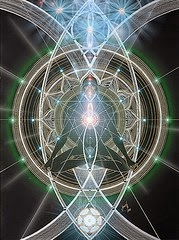 |
| Ahab's white whale, courtesy of the NYTimes. |
The Avoirdupois Chic
More than once did he put forth the faint blossom of a look, which, in any other man, would have soon flowered out in a smile. – Melville
My depraved indifference to death
sets Ahab to thumping his peg
against my leg so we’ll perchance into
that which precedes an heir bearing
his bi-syllabic surname on banners bright
through the belly of the whale warm as
mutton and potatoes tea towel-topped.
If you can’t bear a son, at least a splinter
Mr. Ahab says, for use against blubbery
blowhard though how, you might puzzle.
No intimate to his intricacies am I
who harbor soft-spots for heavyweights
fat as concubines, the avoirdupois chic.
Given the length of a life in nautical miles
there’s hardly time for history to congeal
for the slain to raise kin underskin the
abandoned to banshee dreams as locust
swoop hover and hum desert-side
Ahab Uno’s tent on palmy summer eves.
Ecstasy is all it’s cracked up to be,
insufficient, a means to a cul-de-sac.
Are locust merely in love with love?
Starting soon, let’s no longer be afraid.
The locust are at the door, dear.
Well, set a plate for the happy couples!
Tomorrow Ahab goes with his gut,
with its celiac flora. Sing a seafaring
song of fish fingers, ladies, avast! ahoy!
Childhood fosters the eternal orphan.
God wants what God wants.
You, my dear Ahab, merely want,
though That Can Change, a sea battle
dispatch, a motto conceived of
circumstance and truth, life’s sequels,
now ebooks or available for download
at a workstation near me. Near you.
by Sarah Sarai. first published in Berfrois in 2011.
Berfrois (https://www.berfrois.com) remains a remarkable amalgam of idea, narrative, poetry, perspective, philosophy, natural history, science, art, architecture, you-name-it-ism.




